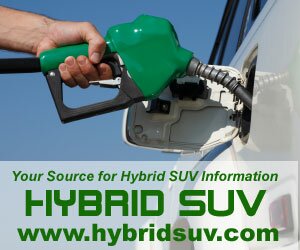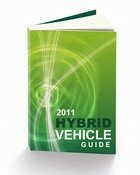Hybrid Cars - The Pros, Advantages, & Benefits

Pros and Cons of Hybrid Cars, a Two-Part Series
First, the Benefits and Advantages
Choosing a new car is all about weighing your options. When deciding between a hybrid car and conventional vehicle, a whole new set of factors comes into play and that does not make the decision any easier. This two-part blog series should help you as you round out your list of pros and cons of purchasing a hybrid car.
You’ll spend less on gas with a hybrid.
It seems that every day, the six o’clock news anchors have something to say about rising gas prices. This week, gas is averaging about $3.62 a gallon, making each fill-up more painful. For example, filling up a 2008 Toyota Prius today would cost you around $43.44. With the Prius’ 46 combined MPG, and 11.9 gallon capacity, you could cruise for 547 miles before refueling. That’s just $.07 per mile.
Compare that to filling up a 2008 Toyota Camry’s 18.5 gallon fuel tank for $66.97 and driving just 351 miles before stopping for gas - that’s $.19 per mile. So, if you drive 15,000 miles this year, you’d save almost $2,000 at the pump by choosing the Prius over the Camry.
You’ll use less natural resources.
It’s a fact that most hybrids use less gas than standard cars (see our previous article on How Hybrids Work to learn how they do it). For every mile you drive and each gallon of gas you burn, your vehicle releases CO2 into the air, building up the amount of greenhouse gases. By using less gas, you put less CO2 into the air and reduce your carbon footprint, or the impact your daily activities have on our planet. Using less natural resources and creating fewer harmful emissions are two major benefits of driving a hybrid vehicle.
You’ll might get money back from Uncle Sam.
When you buy a new hybrid car, you could be eligible for up to $3,000 back on your taxes. These tax credits help make the sticker price of hybrid cars (which is often a little higher than similar cars) much more palatable. Not every hybrid vehicle qualifies for a hybrid tax credit (for example, Toyota hybrids don’t), but many still do. Money back is a nice advantage!
You’ll help lessen our dependence on foreign oil.
Let’s not get too political here, but much of our oil comes from the Middle East. When you consume more, you are telling our government and foreign governments that you are OK with spending an increasing percentage of your paycheck on fuel. As a responsible consumer, it is important to keep in mind where the products you buy came from and what it took to bring them to you. Imagine what would happen to our dependence on foreign oil if everyone drove a hybrid?
You send a message to people and business.
As the saying goes, money talks. By purchasing eco-friendly cars, you are letting people and businesses know that you value protecting the environment and using less fuel. As more consumers make eco-conscious buying decisions, businesses will (and already are) take notice of the trend and strive to create new products that meet the rising needs of buyers. Companies create the products their customers demand.
Obviously there are many more advantages and benefits to owning a hybrid automobile. But, are there also disadvantages? We’ll examine that topic next.




















Pingback by Disadvantages of Hybrid Cars | Hybrid Vehicle Issues on 18 May 2008:
[…] Cons of Hybrid Cars: Part Two The disadvantages In the last post, we outlined some of the top advantages of owning a hybrid car. Now, we will look at a few of the disadvantages and potential problems associated with hybrid […]
Pingback by Disadvantages of Hybrid Cars | Hybrid Vehicle Issues | HybridCars on 18 May 2008:
[…] and Cons of Hybrid Cars Part Two: Disadvantages In the last post, we outlined some of the top advantages of owning a hybrid car. Now, we will look at a few of the disadvantages and potential problems associated with hybrid […]
Comment by JB on 25 July 2008:
When deciding whether it “pays” to buy a hybrid, the current gas price is almost completely irrelevant. The typical person will drive their new hybrid for 5-6 years. (For example, the loan on my new 2008 Prius is 6 years.)
The relevant question is this: what do you expect the gas price will likely be over the life of the vehicle? Very hard to predict, but not hard to figure that it will continue to rise faster than the overall rate of inflation (and certainly faster than most of our salaries!).
Rapidly rising demand from China and India will more than offset any reduction in American/Canadian consumption that comes from (1) general slowdown in the North American economy, (2) people choosing to carpool, take mass transit, consolidate errands, or take fewer leisure drives; (3) people switching to hybrids.
Even if McCain wins and gets to Congress to authorize offshore drilling — which I’d like to see — the new supplies will probably just make up for large old fields whose production is declining. Even if supply somehow increases, demand is likely to rise faster.
These factors are a recipe for $5 gas soon, and %7 gas within the 6-year life of the vehicle. There will be major fluctuations (as I write this, gas in Michigan has dropped 50 cents in a month), but the trend will be drastically upward.